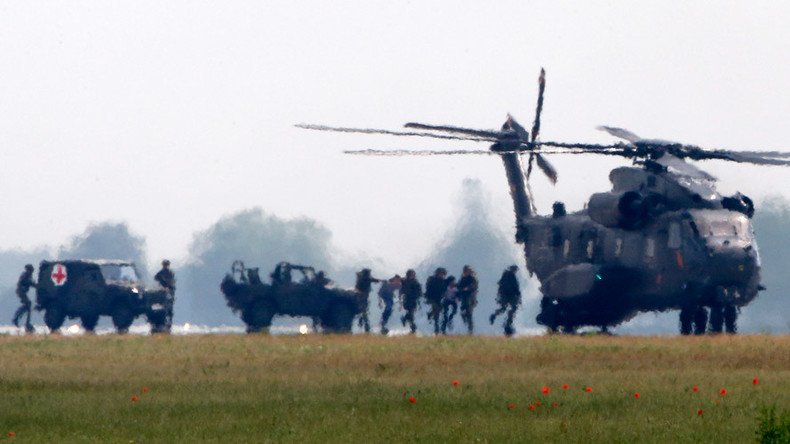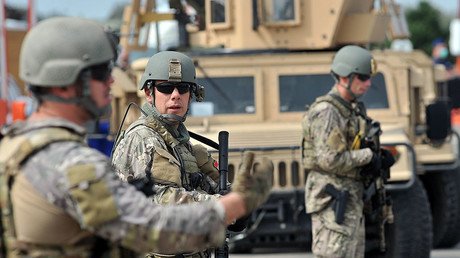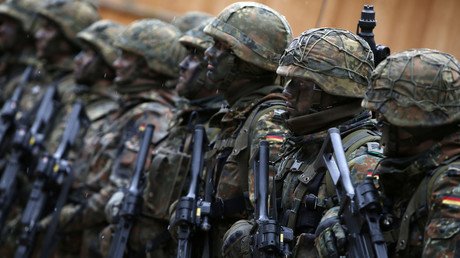Europe should build its own army and not rely on security guarantees from Washington, the European Commission president said following the election of Donald Trump. At the same time, Jean-Claude Juncker called for the preservation of the transatlantic partnership.
Speaking in Berlin about the future of Europe sometime around 2050, Juncker had to ad lib, admitting that his speech had been written with the assumption that Hillary Clinton would be the victor of the US presidential race. But reflecting on the unexpected outcome of Trump’s presidency, Juncker said that “regardless” of who is the US president, the EU and the US must work together.
“We have to work hard to keep this transatlantic relationship in order,” Juncker said. “We remain to be partners, the world needs a close relationship between the United States and the European continent.”
Yet at the same time, Juncker cautioned that in line with a growing threat to Europe’s security, the EU must be able to offer its citizens the required protection.
“We need more security in Europe, and I do not mean just the anti-terror fight,” Juncker said.
“Talking about security we need a different way of organizing a European defense … the French National Assembly in 1954 prevented the European community of defense.”
“We need it now. The idea that the Americans will eternally see to ... European security is not true. Independent of the outcome of the US election, the Americans will not see to Europe’s security forever. We have to do it ourselves. And this is why we need a new approach to the European community of defense, including a European army,” Juncker said.
When speaking about the future state of Europe, Juncker made it clear that the EU should not have a “masters of the world” mentality, but instead should look to secure its interests in the global arena.
“The world does not need any masters. Whenever someone tries to become the master of the world ... This has not worked out.”
He added that Europe is a small continent and has no global ambitions.
By 2050 Europe will lose its position as one of the world’s economic production hubs, Juncker stressed, so it will need to find its own way to secure its position in the world.
“If we want to have some influence in the world. if we want to continue to exists, to prevail, then the European countries have to work really closely.”
“We also have to come to a new description of the cooperation on this continent. When I was young I was also enthused about the United States of Europe. We should not do this. Our people do not want to experience the United States of Europe. We should not give the expression of the EU being on the way to becoming the United Union. I cannot imagine Europe becoming a melting pot where you do not recognize nations.”
The idea of creating European armed forces has been floating around for years. But on Monday, German Defense Minister Ursula von der Leyen called on Brussels to beef up its military capabilities in the face of alleged Russian aggression.
“We have seen an enormous modernization drive by NATO over the past three years because of the Kremlin’s behavior,” the minister said. “That was correct and important, but I believe that we must invest at least the same energy in ... [the] modernization of European security and [a] defense union.”
After Trump won the presidential race on Tuesday, von der Leyen urged the Republican to voice his assurances to NATO.
“Of course we Europeans, as a NATO ally, know that if Donald Trump becomes president, he'll ask: What are you contributing to this alliance?” von der Leyen, told broadcaster ARD.
“But we’re also wondering, what’s your position on this alliance?” she added. “There are many questions yet to be answered.”
The EU ministers are expected to meet in Brussels on Monday to discuss plans to strengthen the EU military cooperation and capabilities. Proposals to be discussed at the meeting include increasing European spending on military missions, jointly developing military assets such and building stronger defenses against cyberattacks.



